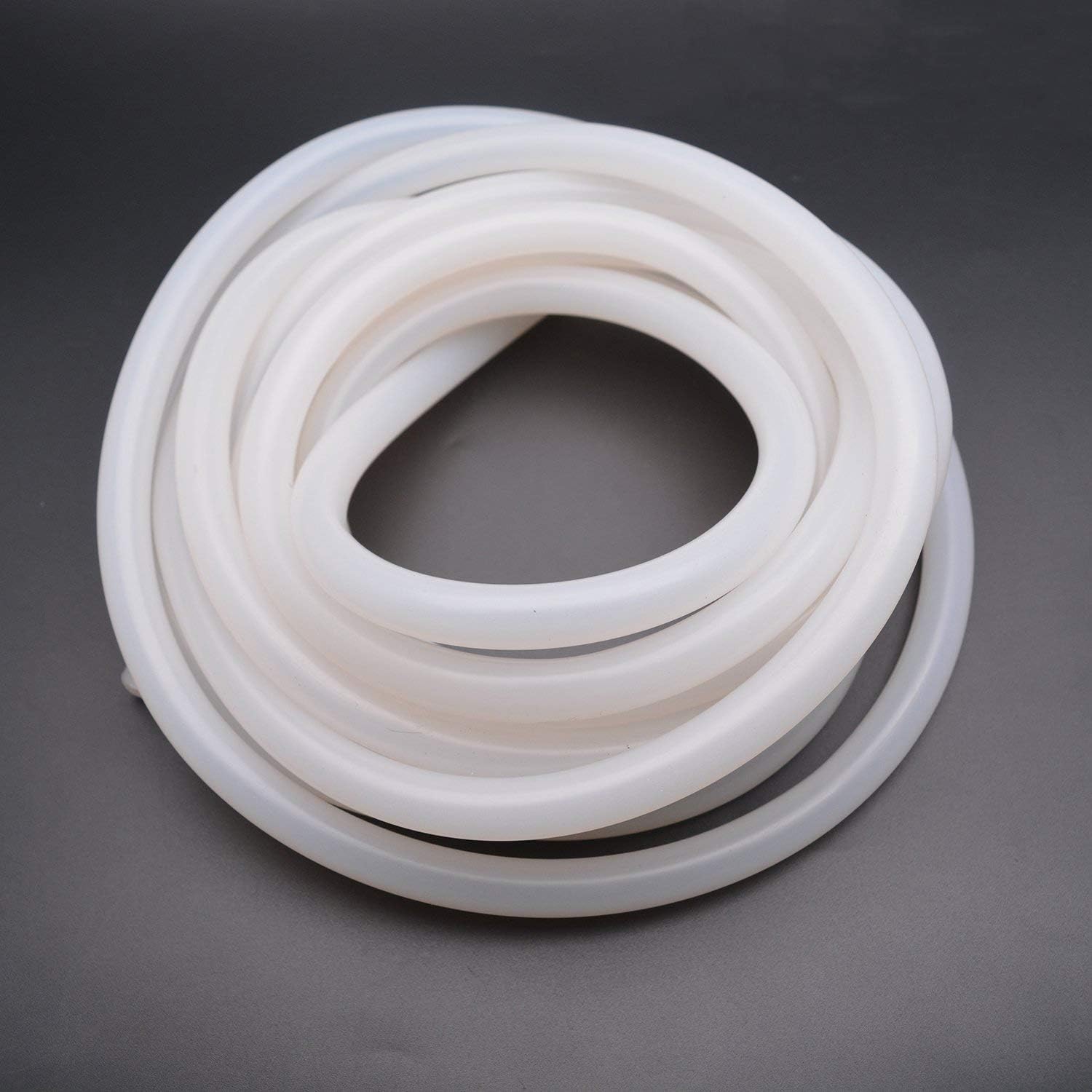What are the benefits of heat resistant silicone tubing?
Silicone tubing with heat resistance is make from high quality silicone raw materials and has a high temperature resistance. What are the benefits of heat resistant ? It is use for a variety of environments, such as high temperatures or high pressures.
It is available in diameters ranging from 6 mm to 19 mm, and is frequently use for water connections, breathers, heater mats, etc. So, Larger heat resistant silicone tubing is permit to be cut to length; it can be use for coolant, inter coolers, and air intakes.
Different reinforcements determine the three types of straight Heat Resistant Silicone Sheet:
1. Polyester built up
2. Nomex built up for high temperature
3. Fluoro lined for conveying fuel and oils
Highlights
- Optimal working temperature: - 55 °C to +300 °C.
- High adaptability of High Temp Silicone O Rings.
- UV and ozone safe.
- Impervious to electro chemical debasement.
- Silicone liner for confining media.

We offer silicone rubber tubing for industrial applications with a variety of benefits, such as:
- Superior flexibility.
High flexibility is one of the advantages of silicone rubber tubing at different temperatures. So, What are the benefits of heat resistant ?Unlike some rubber tubing that softens at high temperatures and hardens at extremely low temperatures, flexible silicone rubber tubing doesn't soften when exposed to high temperatures or harden at extreme cold temperatures.
- Broader temperature resistance.
They also retain flexibility, while being highly resistant to extreme temperatures, UV radiation, and ozone, so they are less likely to degrade when expose to the elements. This makes them an excellent choice for aerospace and outdoor applications.
- Higher strength.
Rubber silicone tubing maintains high tensile strength. This reduces wear and tear, so it is particularly suitable for high stress, high traffic industries, including plumbing and food service.
- Smoother surface finish.
Food grade and medical grade silicone tubing are characterize by their smooth inner and outer surfaces, making them ideal for applications which require a sterile, non-contaminating surface. So, Medical, food service, and analytical instruments have sterile surfaces for preventing contamination.
- Better pliability.
So, Silicon rubber's pliable nature makes it suitable for confined or high-pressure applications, in which a rigid rubber material could break or tear.
Silicone Tube Industrial Applications
Silicone rubber tubing is use throughout numerous industries due to the benefits outline above, including:
- Medical
As a hypoallergenic, non-toxic, and chemically resistant material, medical grade silicone rubber is use to make surgical tubing, drains, and CPAP machines.
- Analytical Instrumentation
The use of silicone rubber components in analytical instruments is highly regard because of their flexibility and sterility.
- Electronic Equipment and Automotive
In many industries, silicone is use for insulation of electrical components, such as in automotive electrical enclosures. Since silicone is an excellent electrical insulator, it is perfect for electronics.
- Food & Dairy Processing
For beverages, dairy processing equipment, and other food industry applications requiring sterile and flexible materials So, that are heat and chemically stable, food-grade silicone tubing is the perfect choice.

- Water Filtration & Purification
So, Silicone rubber tubing is commonly use in water filtration and purification systems. So, It is non-toxic and has a smooth interior and exterior finish.
- Aerospace
Aerospace equipment such as climate control systems and fluid conveyance systems are frequently construct with silicone rubber tubing.
Comments
Post a Comment